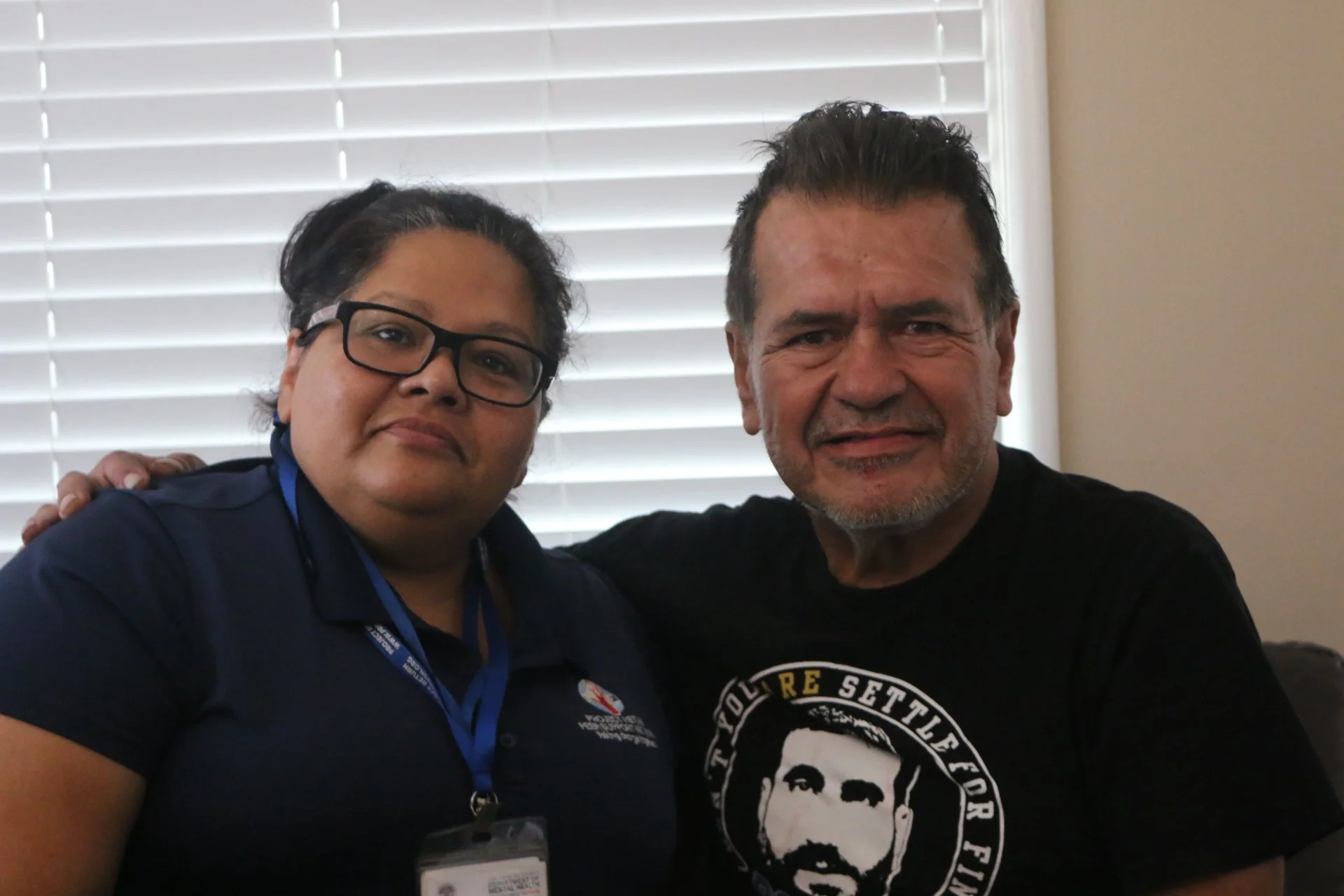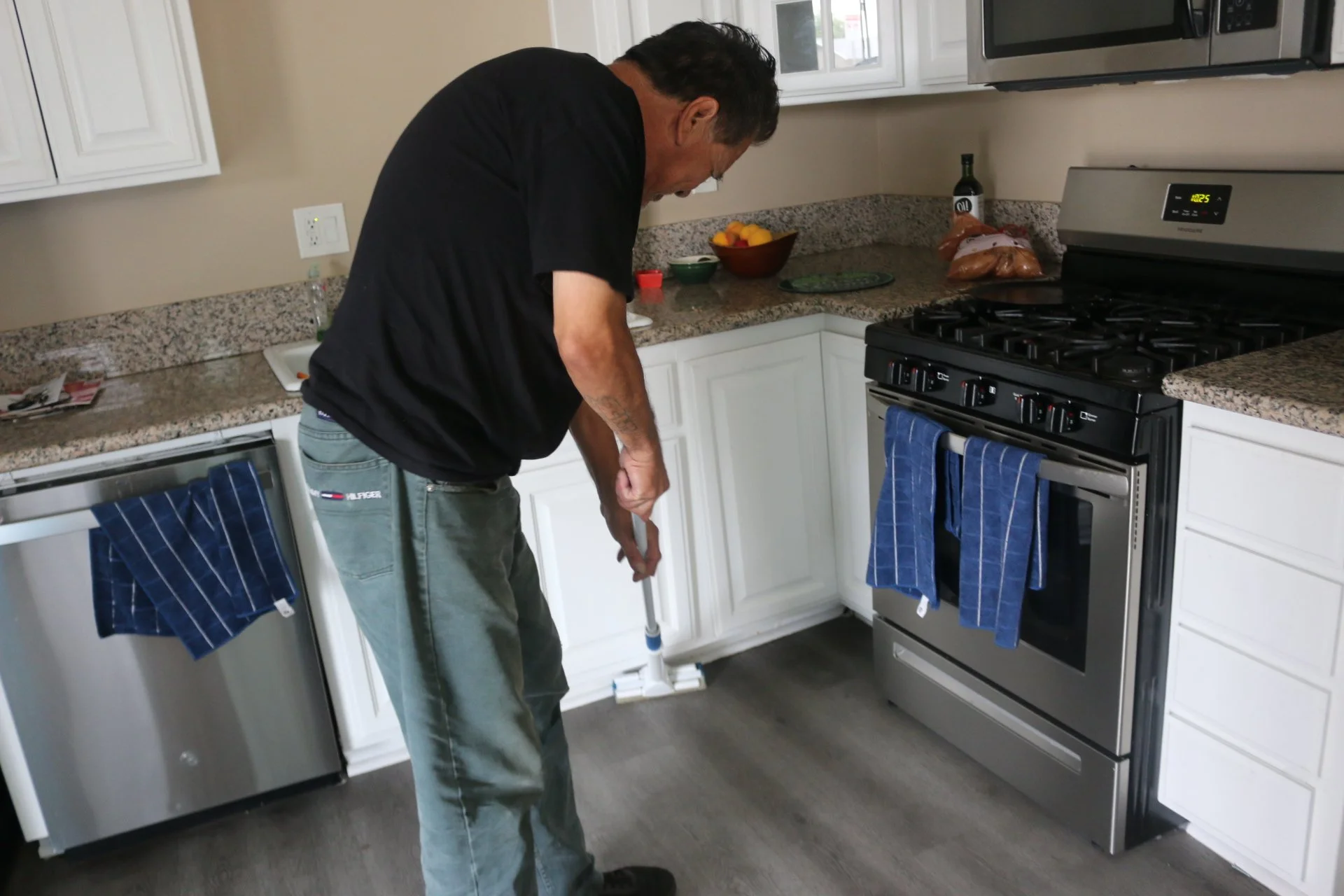Everyone’s a Paycheck Away: Anthony’s Story
For seven years, Anthony called the Azusa riverbed home. His life unraveled when he lost his wife to cancer and then lost his job and home. “I had a car and a good job, and then I lost it all,” he recalls. What followed was years of survival as he battled cycles of grief, addiction, and instability. But Anthony’s story didn’t end there.
Narcisa, a PRPSN peer support specialist, sits with Anthony, who rebuilt his life after years of homelessness. Their connection shows what’s possible when someone doesn’t give up on you.
Anthony lived in the riverbed for nearly a decade. “I thought I was going to fall apart...but I was able to overcome it.” It was in the riverbed where Anthony crossed paths with outreach workers from the Los Angeles Homeless Services Authority (LAHSA), who helped him take his first steps toward stable housing. It’s also where he met Narcisa, a Project Return Peer Support Network (PRPSN) staff member, whose persistence and peer approach changed his mind about getting help.
“When Narcisa first came around, I didn’t trust anyone,” Anthony admitted. “I used to push people away.” But she kept showing up, sitting at the smoking table where residents gathered, building trust, one quiet conversation at a time. Narcisa remembered, “One day he asked me, ‘Would you really help me?’ and I told him, ‘Yes.’”
That moment marked a turning point. With her support, Anthony applied for housing and, after months of setbacks and paperwork, he finally got approved for his own apartment in Temple City; a safe, stable place to rebuild. “This one’s [apartment] ten times better,” he said, smiling. “It’s a one-bedroom, and I’m thankful for it.”
Even after securing housing, Anthony knew the journey wasn’t over. He refused to get too comfortable. “I didn’t want to sit in a room all day. When you stay inside too long, you get depressed,” he explained. Instead, he stays active riding his motorized bicycle around the city, visiting old friends, and encouraging others from the riverbed to keep pushing toward their goals.
“I tell them, don’t give up. Keep trying,” Anthony said. “Some people stop renewing their vouchers or get discouraged, but you have to keep going.” He knows what happens when people get pushed into isolation, it's important to keep engaged with those you care about.
“A lot of people stop talking to those who are struggling,” he said. “Then they become isolated, and that’s when mental health declines. People need communication, support, someone who doesn’t give up on them.”
Now that Anthony is housed, his life looks different. He’s saving toward buying a car, reconnecting with his four children, and maintaining the stability he thought was out of reach. With ongoing support from peers like Narcisa, he’s not only sustaining his own recovery, but he’s also inspiring others to believe change is possible.
“Every day, I try to keep my space clean and my mind clear,” Anthony says. In his new home, even simple routines have become part of his healing.
“Anthony shows what peer support is all about,” Narcisa said. “It’s not about doing it for someone. It’s about standing with them, walking those extra steps together, until they can walk on their own.”


